Stories
Send Us Your Story or Video
Submit a video, story, poem, artwork, or audio clip telling us about your experience with transitioning to adulthood. We would love for you to share your success stories about preparing for or finding a job, navigating postsecondary education, or identifying a community resource or piece of assistive technology that really worked for you, or your son or daughter.
Ashlee sees opportunities instead of obstacles
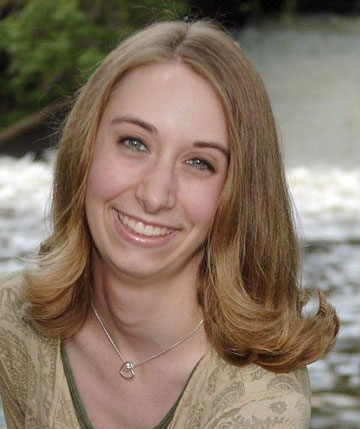
Ashlee Kephart is the founder and executive director of a successful nonprofit with a chapter in Liberia, Africa; she’s a winner of a 2008 national award for “Most Caring American”; and was selected as one of 20 U.S. torchbearers for the 2010 Winter Olympics. Those are impressive accomplishments for any adult. For an 18-year-old from Brooklyn Center, Minn., with the extra challenge of having dyslexia, they’re outstanding.
“I was very little when I found out about my disability, and I felt pretty bad,” Ashlee says. Then one day in sixth grade she saw a poster at school of one of her favorite historic figures. The man was Albert Einstein, and the poster said, “Even Einstein had trouble in math classes. He had dyslexia. What’s your reason?”
“At that moment I knew I wasn’t alone and that some very intelligent people also had dyslexia,” Ashlee says. “From that time on, I was able to accept it and worked hard to compensate for it so it would not become a barrier for the things I wanted to do.”
Ashlee’s resolve was matched by her mother’s commitment to help her succeed. Top grades weren’t a problem when Ashlee had accommodations such as more time for tests and writing assignments. “PACER was very instrumental in helping Ashlee get accommodations through a 504 Plan,” says her mom, Sharon Kephart. “I’ve received so much support through PACER over the years.”
Ashlee’s determination to reach her goals paid off. When she was 16, she expanded her longtime volunteer activities by founding Kids for a Better World, Inc ., a nonprofit dedicated to youth volunteerism. Ashlee promotes the empowerment of youth through her organization, which coordinates community initiatives and spreads the volunteer spirit internationally by connecting youth all over the world.
Through her hard work and dedication, she has raised more than $100,000 for charity, recycled more than 10,000 cans, distributed more than 15,000 Caring Bags of personal-care products to people who are homeless, 65,000 shoes to underprivileged families, 10,000 books to children in hospitals and orphanages, and 4,000 backpacks to victims of disasters. Ashlee also established a chapter of Kids for a Better World in Liberia in 2008, which has helped more than 417 children through its child development center.
In 2008, her volunteer efforts were recognized as she and four other young adults were honored at the Frederick Douglass Museum & Hall of Fame for Caring Americans in Washington, D.C. as a “Most Caring American.”
Her hard work in school was rewarded, too, with top grades and more than 20 college scholarships. Ashlee plans to earn a degree in clinical psychology with a focus in forensics.
In 2010, she donned an Olympic running suit and carried the 3.5-pound Olympic torch through Calgary, Canada, as it made its way to Vancouver for the winter games. She was one of just 10 U.S. teens selected as a torchbearer because of her “remarkable dedication in encouraging others and making a positive difference in so many lives,” says Celeste Bottorff of Coca-Cola North America, which is a sponsor of the Olympic Torch Relay.
“I learned from my mother and her life examples that it’s all in how you look at things,” Ashlee says. “When faced with adversities, I choose to see opportunities instead of obstacles. So many people have been able to overcome a disability. Having a disability doesn’t mean you can’t do what others can do. It means you might have to do it a different way or it may take you longer, but there’s always a way to do what you want to do.”
By: PACER
Permalink for Ashlee sees opportunities instead of obstacles
Perseverance leads to rewards
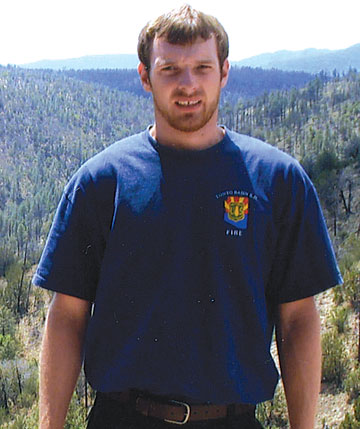
Noah Melhorn, 21, is a wildland firefighter battling blazes most recently in Arizona. But for most of his life, he fought a different type of battle with the help of his mother, Terri Fierstine. Diagnosed with dyslexia and learning disabilities when he was in fourth grade, Noah struggled to read.
“He wasn’t catching on, and I kept wondering when he would be able to read a paragraph,” says Terri, who now lives in Walker, Minn. “Both of us were frustrated.”
When special education services during the school year didn’t help him progress, Terri sought additional tutoring help in the summer. She was eventually able to secure payment for the service through the school district her son attended at that time.
“Through perseverance, many meetings with teachers, numerous IEPs, phone calls, e-mails, and summer tutoring, Noah caught up in high school,” Terri says.
In fact, Noah was on the honor roll throughout high school and received numerous scholarships when he graduated in 2006. After graduating from a wildland firefighting program at Itasca Community College in Grand Rapids, Minn., Noah found work fighting fires in Arizona and loves the challenging job, says Terri, a mother of four.
Through the toughest school years, Terri and Noah just kept trying. “Noah always kept everything positive,” she says. “He taught me a lot. He taught me to take breaks. When things were too hard, we would shut the book and come back to it later.” Though they took breaks, Terri and Noah didn’t let discouragement keep them from pressing forward.
“During challenging times, don’t give up,” Terri advises. “Instead, take a deep breath and realize that you are your child’s strongest advocate. Persevere for your children’s special needs in education. The rewards are a lifetime of happiness in seeing your child’s dreams become a reality and knowing you did everything you could for them!”
By: PACER
Permalink for Perseverance leads to rewards
Fulfilling her potential with assistive technology
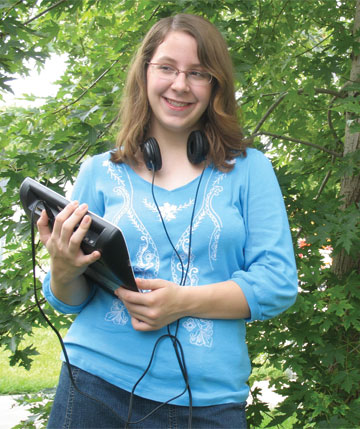
Elizabeth Watson, who has Asperger’s syndrome, was struggling in school because of her writing abilities. Through a PACER Simon Technology Center consultation, she found help through an assistive device that made all the difference. She now uses “The Writer,” a portable note taker that allows her to write legibly and that reads out loud what she has written.
Through using “The Writer,” Elizabeth’s reading vocabulary score dramatically improved from 68 to 98 percent and her language expression score soared from 62 to 90 percent. Best of all, she is now excited about writing and about her future.
“I hope that our story will encourage parents who are actively seeking technology to help their children fulfill their potential,” says Luisa Watson, Elizabeth’s mother. “Thank you PACER!”
By: PACER
Permalink for Fulfilling her potential with assistive technology
Resilience on the path to high school graduation
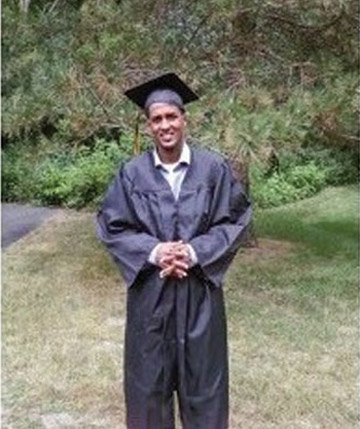
One morning, a youth named Abdi called PACER, upset and in tears. The high school senior had just been expelled from school and did not know what to do. His highest priority was to graduate with his peers, yet it all seemed in jeopardy. Eighteen, homeless, and with no family, he knew no one who could help him.
The PACER advocate learned that Abdi had been going through a special education evaluation when a security guard informed him that he was not welcome at that school anymore. Even though the special education teacher explained that she had asked Abdi to come in for the evaluation, the guard forcibly ejected him from the school.
The PACER advocate assessed the situation and realized that three things needed to happen: The question of whether Abdi had a disability needed to be resolved, an administrative error underestimating Abdi’s credits had to be corrected, and Abdi needed to be transferred to a school where he could successfully complete his secondary education. After making many phone calls and attending dispute resolution meetings on Abdi’s behalf, PACER’s advocate succeeded on all counts.
Abdi, the PACER advocate, school personnel, the school psychologist, and the district special education coordinator agreed that although Abdi probably would qualify for special education if he took some additional tests, they would forgo them because the school year was nearly over. That question about missing credits? It was resolved when administrators found they had made an error. Everyone also agreed that a placement in another school might be best for Abdi. Although he was apprehensive, Abdi understood that the move would benefit him and he accepted an administrative transfer to another location.
The PACER advocate assisted him in his transition to the new school. Abdi was so happy, he could not stop thanking his advocate and PACER.
Abdi continued to call his advocate to seek advice. One day he called nervously to ask a personal question. Since he had no family, would the advocate go with him to graduation? On that important day, the PACER advocate and Abdi’s special education teacher were there to see him walk across the stage in cap and gown and receive his hard-earned diploma.
“Despite so much hardship in his life, this young man showed amazing resilience and perseverance,” says his PACER advocate. “Where others might choose easier paths or even give up, Abdi surmounted obstacle after obstacle to graduate from high school and set himself on a path to a bright future.”
Only three months after that initial tearful call from the youth, the advocate received a June 18 text message that showed just how far things had come. It was from Abdi, wishing him a happy Father’s Day.
By: PACER
Permalink for Resilience on the path to high school graduation
Replacing crisis with plans and support
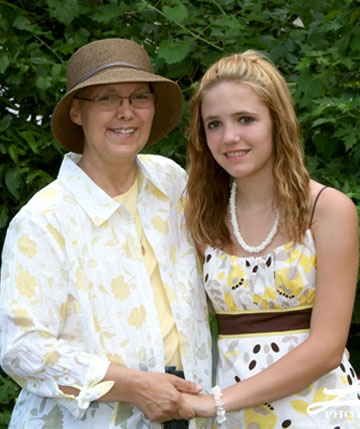
By the time Thea Johnson was born, she had already faced more challenges than most babies will ever know. Her mother, Paula, had been diagnosed with advanced breast cancer the same day she learned she was pregnant. When Paula went into labor nearly two months early, Thea entered the world medically fragile, needing oxygen and a heart monitor, and fighting multiple infections. As if she knew the road ahead would be rough, “she screamed nonstop,” says her aunt, Erika Frake. “You couldn’t soothe her.”
That road turned out to be rougher than anyone anticipated. For the past 16 years, while Paula battled breast cancer, a fight she recently lost, Thea struggled with multiple health issues, developmental delays, and learning disabilities.
“Thea had many sensory issues,” Erika recalls. “Paula was told she would probably be deaf and blind. But Paula was a total advocate for her from the beginning. ‘I know she hears me. I know she sees,’ she would say. Her mission was to help Thea succeed. Paula lived and breathed for Thea. She really fought.”
That advocacy took many forms. Born with a genetic autoimmune disorder and many allergies, Thea was medically complicated. “A lot of times we didn’t know whether Thea would live or die,” Erika says, noting that her niece would be in the hospital for months at a time.
School was a struggle, too. Frequent hospitalizations meant a lot of missed classes, and Thea was just expected to catch up on the work she’d missed. In addition, Thea has ADHD and dysgraphia, a learning disability that affects handwriting and the ability to express thoughts in written form. She couldn’t copy images, so learning to write was tedious. “She had trouble learning concepts, such as telling time. She doesn’t learn in a traditional format,” Erika says. “Teachers didn’t know what to do, and they didn’t have time to work with her.
“Paula was in tears many days,” she recalls. “She’d say, ‘I just want her to be able to learn. No one’s working with her.’ The family was in desperate need,” Erika says, as they faced mounting medical bills, constant stress, and education barriers.
Then, when Thea was 10, someone suggested that Paula call PACER Center. “I still remember when she called me in tears telling me about PACER and the wonderful people there,” Erika says. “She said, ‘Can you believe it? They do everything to make sure Thea will have what she needs in school. I don’t have to face this alone anymore! We’re implementing an Individualized Education Program (IEP). PACER told me things no one else had told me about. And they helped us sort out the insurance issues and find personal care assistants so we can have respite care.’”
It was a turning point. Instead of moving from crisis to crisis, they had a plan and support. The IEP addressed many issues and ensured that Thea would receive tutoring during her long hospitalizations. Thea, meanwhile delved into PACER’s technology workshops, Creation Station art activities, and the popular EX.I.T.E. technology and science camp for middle-school girls with disabilities.
“Thea is actually doing very well now,” Erika says. “She’s a typical teen. You would never guess in talking with her that she has learning disabilities. Her main issues are still with writing and math.”
Throughout this journey, Paula was in and out of remission, coping with her own health issues while raising Thea and three other children with her husband. Eventually, her cancer spread to her bones and treatments stopped working. Knowing that her time was limited, Paula began to worry about who would advocate for Thea as she grew older and faced transition issues. Concerned that the time after her death would be very hard for her husband and other loved ones, she worried about whether they would have the strength to advocate for Thea alone during this time.
“She wanted to have a plan of action that was set to go and would continue so Thea would not fall through the cracks,” Erika says. Paula again turned to PACER. “The parent advocates jumped up to the plate,” Erika says, noting that a plan was put into place that would protect Thea’s educational rights in the future.
In January 2009, Paula lost her 16-year battle with cancer. In the grief that has followed, there has been one island of comfort, Erika says. “She told me a few months ago, ‘I know Thea will be okay because even though I can't be her advocate anymore, PACER is still there and will help her.”
By: PACER
| Page 2 of 2 | |||
| First | Previous | Next | Last |

